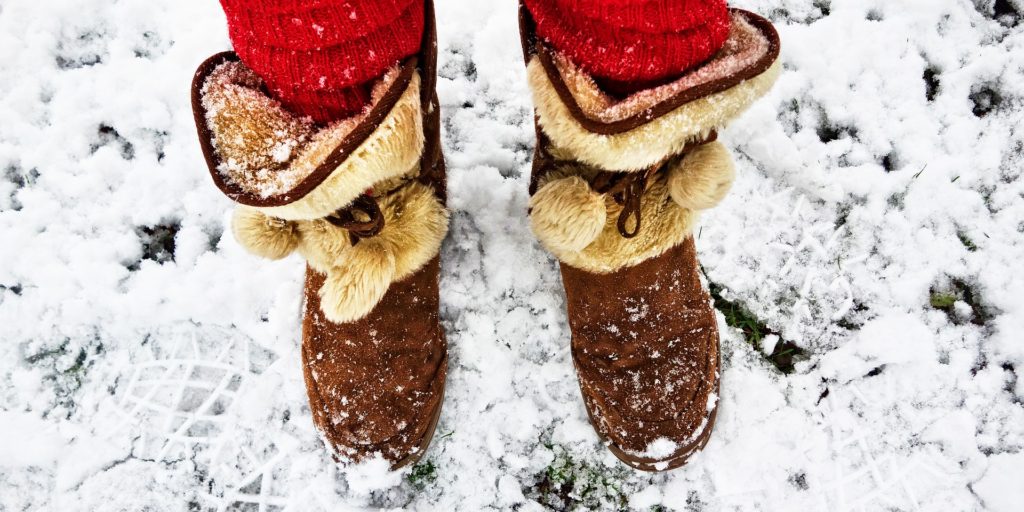- Higher speeds on Ontario highways may lead to more collisions - May 9, 2024
- Optional coverage is the wrong way to cut insurance rates - April 22, 2024
- A primer on successfully claiming LTD benefits in Ontario - March 18, 2024
By Paul Russell, LegalMatters Staff • Winter is almost us and so are the car accidents and slip-and-falls that inevitably accompany the season.
While another driver or the property owner who didn’t clear their sidewalk may be primarily at fault in those situations, Toronto personal injury lawyer Joshua Goldberg says courts may determine that the victim failed to take common-sense steps before the incident to reduce the chance of injury.
“Before driving everyone has to clear snow off their windshield, as well their side and back windows,” says Goldberg, principal of Joshua Goldberg Law. “It should be common sense, but there are always some people who feel they don’t have to do that.”
It is illegal not to clear windshields of snow
Drivers in Ontario who fail to clear the snow from their windows can be charged under s. 74 (1) of the Highway Traffic Act. It states that “No person shall drive a motor vehicle upon a highway, unless the windshield and the windows on either side of the compartment containing the steering wheel are in such a condition as to afford the driver a clear view to the front and side of the motor vehicle.”
The back window also has to be cleared of snow and ice, the Act states, as it has to be in “such a condition as to afford the driver a clear view to the rear of the motor vehicle.”
There is an exception granted for vehicles equipped with mirrors that offer “a clearly-reflected view of the roadway in the rear or of any vehicle approaching from the rear.”
$110 fine just the start
The legislation calls for $110 penalties for offenders. Goldberg says that amount could be easily eclipsed by the damages awarded in a lawsuit by someone hurt by your act of negligence.
“If you leave snow that blocks your visibility and you get into an accident, you will be found at fault for that accident, as it can be shown that your ability to watch for other cars was cleared impaired,” he tells LegalMattersCanada.ca.
Having winter tires is another easy step people can take to increase traction in the snow and reduce the chance of accidents, Goldberg says.
Winter tires help with braking
“There’s a very good reason why insurance companies often will offer a discount to drivers who have them,” he says. “They are very helpful in preventing accidents on snow-covered roads.”
A media report states that depending on the speed and the weather conditions, “winter tires can actually reduce your braking distance by up to 25 per cent or two vehicle lengths compared to all-season tires.”
“Winter tires are a really good investment, especially here in Toronto, where drivers can face all types of winter hazards as they get across the city,” Goldberg says.
$300 fine in Quebec for rule-breakers
He adds that he previously lived in Quebec where winter tires are mandatory. According to the Quebec legislation, from Dec. 1 to March 15 all vehicles “must be equipped with four winter tires that meet established standards and are in good condition.”
It adds that this requirement also applies to rental passenger vehicles, mopeds, motorized scooters and motorcycles, with offenders fined up to $300.
- Courts must be convinced that pets are more than property
- We can expect to see more COVID long-haulers in court soon
- General and special damages possible after a personal injury
Goldberg notes that Ontario considered passing similar legislation but instead opted to only go so far as to recommend winter tires, with vehicle owners in Northern Ontario allowed to use studded tires between Oct. 1 and April 30.
If your preferred mode of transportation in the winter is to walk, he says it is important to think about footwear.
The wrong footwear leads to falls
“You can’t wear high heels or a smooth-bottom leather shoe on icy or snow-covered sidewalks,” Goldberg says. “People should wear proper winter boots. If they don’t and they slip-and-fall, the court could decide they were partially responsible for the injury they sustained.”
In most of the slip-and-falls cases he has been involved with, he says that defendants ask to see the shoes or boots the plaintiff wore at the time.
“Any steps a person has taken in advance to prevent a fall is helpful in reducing their liability if they are injured on someone’s property,” Goldberg says. “Footwear is always a factor when deciding on contributory negligence.”
Common sense trumps fashion sense
He warns that common sense, not fashion sense, should dictate what to wear when walking in the winter.
“In assessing claims for car accidents, determining the general and personal damages is the big issue. In slip-and-falls, determining liability is more important, as is the key issue in 90 per cent of the cases I handle,” Goldberg says.
He adds that some personal injury lawyers do not take on these cases, considering how difficult it is to establish liability.
“In contrast, I’ve been successful in representing many of my clients in this area,” Goldberg says.
While he has not had a slip-and-fall case yet this winter, he anticipates that will soon change.
“The season is coming and I expect we will see many cases this winter now that people are returning to a normal lifestyle after the lockdown sparked by the COVID-19 pandemic,” Goldberg says.


Pingback: Advice on slip and falls, COVID, accidents, holiday parties and pets ⋆ LegalMattersCanada